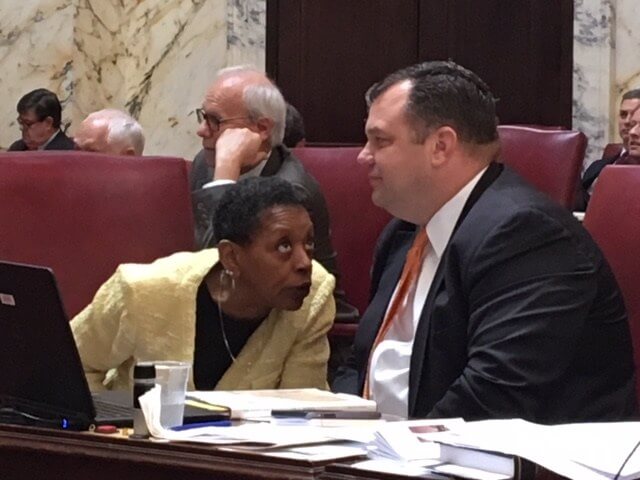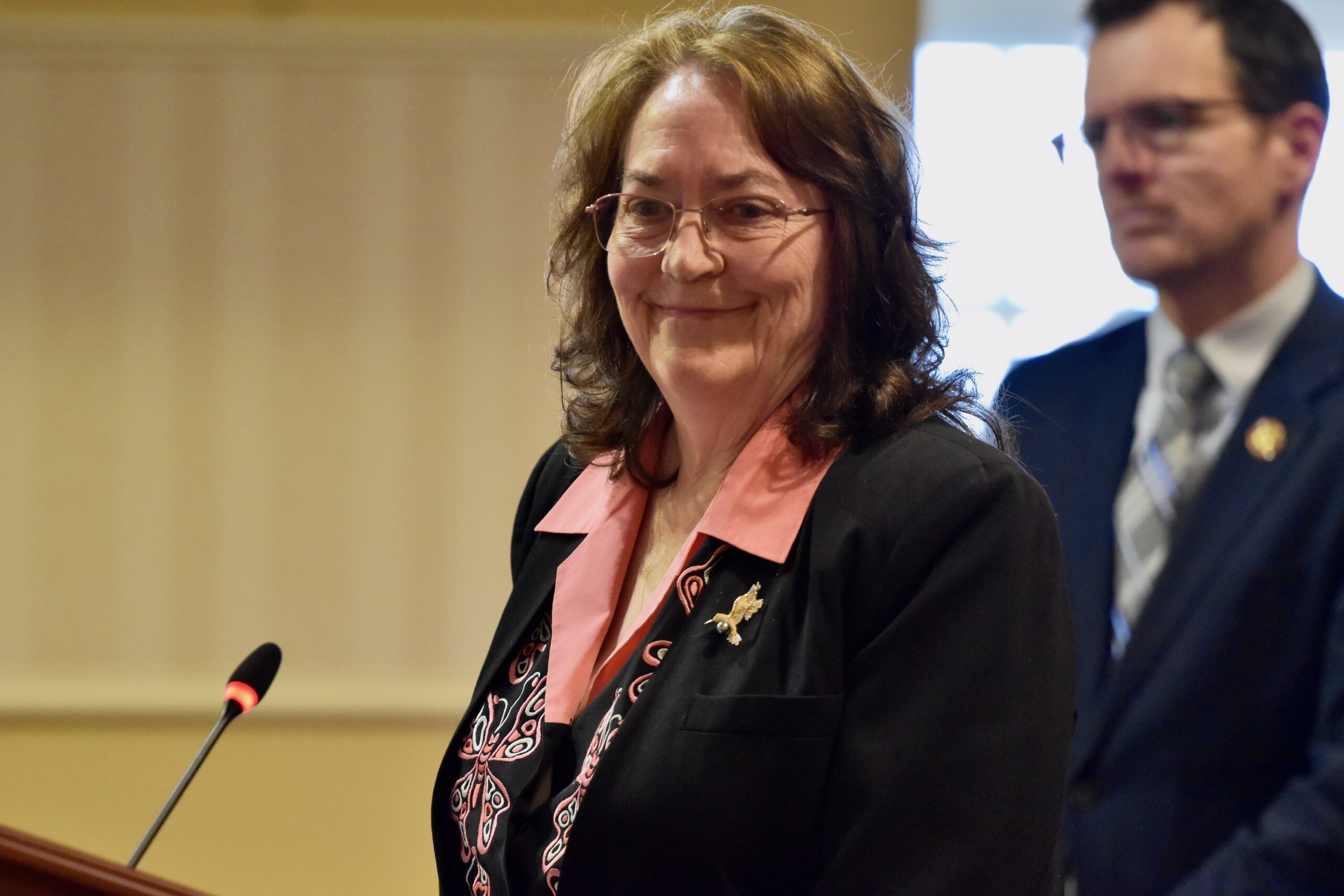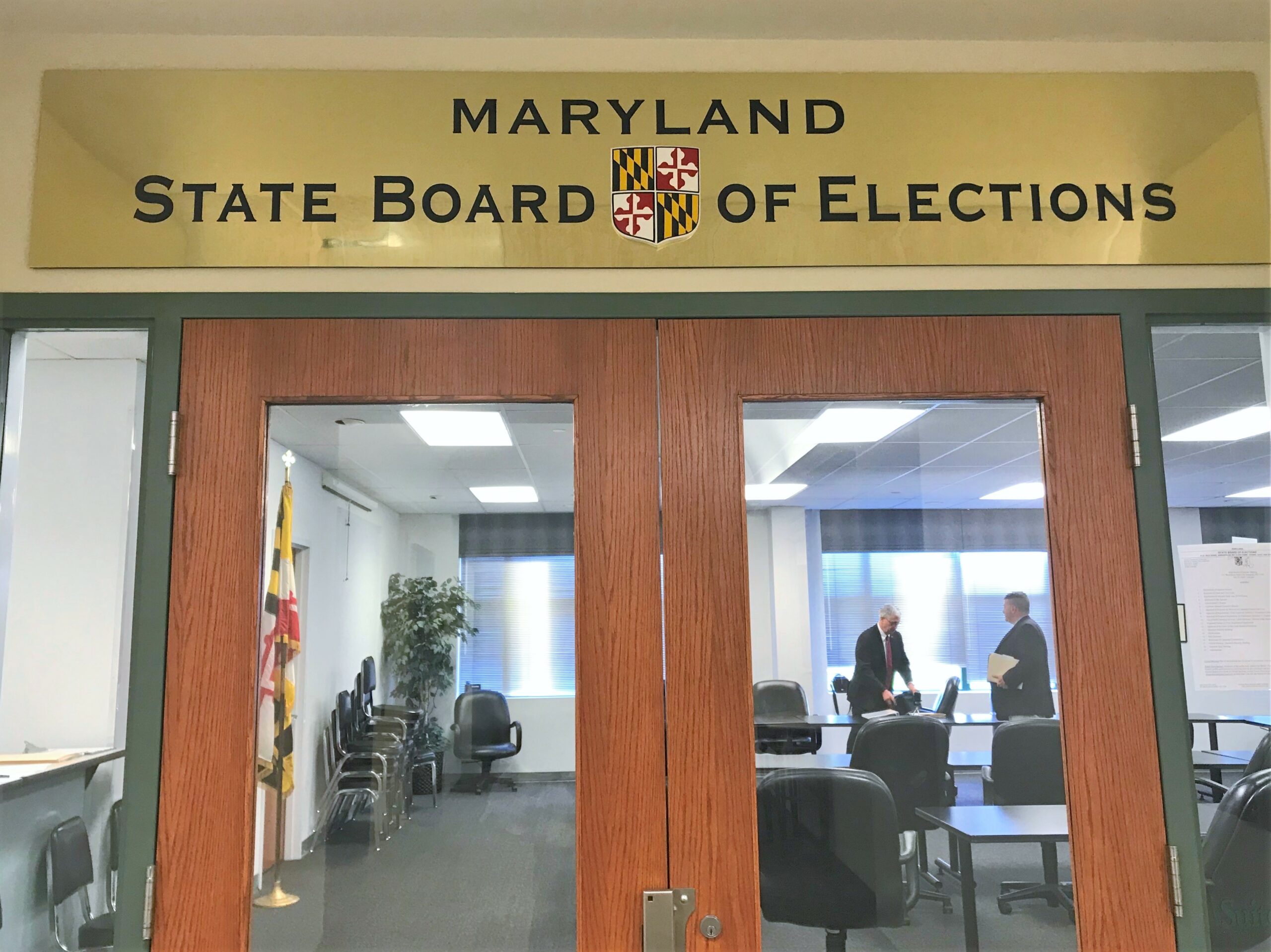Out of State, Not Out of Mind: Senator Presses for Answers on Union PAC Cash

An out-of-state political committee’s two-year involvement in Maryland elections that went unreported in the state’s campaign finance reporting system despite more than $1 million in spending was at the center of a Maryland Senate committee hearing on Thursday.
Thursday’s hearing at the Senate Education, Health and Environmental Affairs Committee was chaired by Sen. Joan Carter Conway (D-Baltimore City) – who happened to be on the receiving end of negative mailers from the committee, 1199SEIU NYS Political Action Fund, during her unsuccessful bid for reelection this year.
The hearing officially was an “election briefing on registration requirements for political committees and penalties for violation of independent expenditure reporting requirements and related enforcement actions.”
But the process is convoluted and carries myriad political implications – especially considering some of the players involved.
The PAC for Local 1199 of the Service Employees International Union (SEIU), a powerful health care workers union based in Manhattan but active in Maryland, had filed paperwork with the New York State Board of Elections, but for years had not filed with the Maryland board in Annapolis, despite giving cash donations to campaign committees and paying for election help, such as mailers, in the state.
Under Maryland law, an out-of-state political committee must register with the state board within 48 hours after directly or indirectly spending $6,000 or more in an election cycle and then file periodic campaign finance reports.
After inquiries from Maryland Matters in June, the 1199SEIU NYS Political Action Fund registered with the Maryland State Board of Elections and reported more than $1.4 million in campaign activity through August, some of it dating back to 2016.
Earlier this month, the state board announced that the committee, while maintaining that the failure to report was an oversight, had paid a civil penalty of $8,580. It was the maximum penalty allowed under state law for failures to register and file reports by an out-of-state committee, which is treated the same, in most regards, as a state-based candidate committee.
But some of the activity of the 1199SEIU NYS Political Action Fund that had gone unreported included independent expenditures. Fines for unreported activity by organizations registered as independent expenditure entities face much stiffer penalties under state law.
For instance, at the same Board of Elections meeting where the 1199SEIU NYS fund’s penalty was announced, board members were notified of a $16,626.17 fine assessed to the Maryland REALTORS Political Fund, which failed to timely report independent expenditures as an independent expenditure entity.
Jared DeMarinis, director of candidacy and campaign finance for the Maryland State Board of Elections, told the Senate panel on Thursday that the 1199SEIU Political Action Fund operated within the bounds of the law, which allows out-of-state political committees to both make direct contributions to candidates and undertake independent expenditures. While independent expenditures by other types of committees have to be reported within 48 hours of reaching a certain threshold, the same types of independent expenditures by an out-of-state political committee only need to be reported on the same schedule as candidate committees, no matter the amount, under state law.
“So they can send anything they want ― which they did, obviously ― and they don’t have to itemize, they don’t have to say what their independent expenditures are?” Conway asked, referring to the fact that the 1199SEIU NYS Political Action Fund’s reports disclose independent expenditure spending, but not which candidates were supported or opposed by the expense. Not as an out-of-state committee, DeMarinis responded.
SEIU’s spending
Since June, the 1199SEIU NYS Political Action Fund has filed 15 belated campaign finance reports and amendments for activity dating back to 2016. Five of the recently filed reports and amendments are for campaign finance activity in 2016.
A 16th report, detailing campaign finance activity between June 11 and Aug. 21 was filed on time at the end of August. The filings show that the organization has given to more than 100 candidates since 2016, almost entirely Democrats. The fund made donations in races including the 2016 race for Baltimore City Council and mayor.
In the 2018 election cycle, the fund has supported General Assembly candidates in Baltimore, Charles, Frederick, Harford, Howard, Montgomery, and Prince George’s counties and the city of Baltimore, among others. The fund also contributed to candidates running for Prince George’s County Council and Baltimore County Council, as well as county executive races.
The fund has given $500,000 to the Maryland Together We Rise Super PAC, which supports the gubernatorial bid of Democrat Benjamin T. Jealous, and $75,000 in 2018 to the Maryland Citizens Health Initiative.
As of the most recent filing on Aug. 28, 2018, the fund reported a negative balance of $1,430,923.93, reflecting the union’s total political spending in the state.
DeMarinis said the committee was fined the maximum amount allowed, $5,000, for failure to register as an out-of-state political committee.
The rest of the penalty paid by 1199SEIU NYS is for the late filing of reports. The state assesses daily late fines of $10 or $20 per day depending on the type of report; late filing fines max out at $500.
For some of the late reports, 1199SEIU NYS was assessed the full $500 fine, for other reports, a smaller sum had tolled before the report was filed, DeMarinis said. A complete accounting of the fines was not immediately available.
Other questions have been raised about the committee’s activities. During Thursday’s hearing, Sen. Barbara A. Robinson (D-Baltimore City) asked how overcontributions by out-of-state political committees are enforced by the election agency.
The 1199SEIU NYS disclosures indicate that the organization may have donated to some candidates in excess of Maryland’s prohibition against more than $6,000 in contributions to a candidate campaign account in a four-year election cycle. Filings showed donations of more than $6,000 to five candidates: Prince George’s County Del. Alonzo T. Washington ($12,000), Prince George’s Del. Erek Barron ($8,000), Montgomery County Del. Jeff Waldstreicher ($8,000), Baltimore City Del. Nick Mosby ($12,000), and Baltimore City Councilman Ryan Dorsey ($12,000).
While SEIU may have cut multiple checks, it doesn’t appear that all of the candidates accepted multiple payments, as reflected in their own campaign finance reports, DeMarinis said. Washington, Barron and Dorsey all reported receiving just one payment from SEIU and not others reported by the PAC as contributions.
Waldstreicher and Mosby do appear to have accepted in excess of $6,000, as reported by their campaign finance committees.
DeMarinis said the State Board of Elections will undertake an audit in 2019 — at the end of the four-year election cycle — that would include a review of any overpayments to or from any candidates statewide.
The 1199SEIU NYS Political Action Fund has attributed the failure to file reports in Maryland to “internal processing errors,” but said the expenses had been included in campaign finance reports in New York.
Pat Lippold, political director for 1199 SEIU Maryland/DC, emailed a statement to Maryland Matters last week in response to questions about the penalty.
“In June we were made aware of internal processing errors involving political expenditures that were not reported in a timely manner to the Maryland State Board of Elections, resulting in a civil penalty of $8,580. These errors were inadvertent and were immediately rectified. We have filed reports disclosing our Maryland contributions and expenditures, and are currently in compliance,” Lippold wrote. “All of our mailings and other political activities properly identify the 1199SEIU NYS Political Action Fund as the payer, and the PAC has reported all of its spending, in Maryland and elsewhere, in its public filings with the New York State Board of Elections.”
Fines and penalties paid to the Maryland State Board of Elections are directed to the Fair Campaign Finance Fund, which makes state funds available to candidates for governor who opt in to the public financing system.
Independent expenditure fines
There are 18 groups registered as independent expenditure entities in the state of Maryland right now, DeMarinis said.
Since state election law governing these groups was changed in 2016, three fines for failures to timely report independent expenditures have been levied, he said.
The Maryland REALTORS Political Fund is the only independent expenditure entity to be fined so far this year.
Typically, the fine for filing an independent expenditure report late is 10 percent of the undisclosed expenditure, DeMarinis said. Independent expenditures must be reported within 48 hours after an entity makes aggregate expenditures of $10,000 or more.
The REALTORS political fund was fined at a time when it filed a late disclosure of about $160,000 to support campaigns in primary elections for county councils and commissions in Calvert, Charles, Montgomery and Prince George’s counties.
After amendments to an original filing, it was revealed that the fund had spent more than $444,049.82 in the races. DeMarinis said he and the REALTORS Political Fund acted in good faith in addressing the late disclosure and penalty, and the fine was unlikely to increase now that additional spending has been disclosed.
Mark Feinroth, who is listed as the principal officer for the Maryland REALTORS Political Fund, said the entity always intended to comply with the disclosure requirements, but had trouble navigating the state’s online filing system.
“We wanted to make it right as soon as possible. And we we did,” Feinroth said. He noted that the fund was set up only to support candidates and not for opposition advertising.
The independent expenditure committee is funded by the National Association of REALTORS in D.C.
Since forming in June, the entity has spent $588,012.26 and has supported a total of 20 candidates ― Democrats and Republicans ― through independent expenditures for direct mailing, field expenses, media and postage, according to campaign finance filings. Other outstanding debts, $481,068.49, are not pegged to particular candidates.
Ten of the candidates who received support from the political fund in the primary made it through to the general election ballot.
Changes to the law?
So far this year, the Maryland State Board of Elections has collected more than $46,000 in penalties for campaign finance violations, most of them $500 or less, DeMarinis said.
Complaints have been received by the state against more than 200 campaign finance entities, he said. The state board doesn’t accept anonymous complaints and requires supporting documentation from those who file complaints. The state board has one full-time employee right now to investigate the complaints that come in.
The Thursday hearing included testimony only from DeMarinis, but some groups also submitted written testimony.
Common Cause Maryland wrote testimony calling the state’s complaint-based regulatory system problematic.
“This system can often work well in contested races where opposing campaigns have the resources to monitor each other,” the government watchdog organization wrote. “However, as the methods of influencing Marylanders become more complex, and in cases where candidates run with little to no opposition, this system may not be enough to detect, deter, and penalize bad actors.”
The advocacy group suggested that the General Assembly should give the State Board of Elections the authority to conduct random audits of campaign finance committees and allow the agency to independently open an investigation when they witness potential violations.
Common Cause also recommended that the General Assembly should act to “close the LLC loophole once and for all by banning corporate donations to candidates.” The letter cited the ongoing race for Montgomery County executive, in which Independent candidate Nancy M. Floreen recently returned $18,000 in donations after questions arose about murky corporate ownership of donors.
Finally, Common Cause noted that the state board needs more staff to help enforce existing laws.
“If this committee is serious about strengthening campaign finance oversight, they must give the Office of Candidates and Campaign Finance more resources, specifically employees, to conduct that oversight. Without sufficient staffing, few rule changes will meaningfully increase oversight,” the group wrote.
At least one bill to address independent expenditures from out-of-state political committees has already been drafted, by Conway. The outgoing lawmaker said she believes independent expenditures should be subject to the same rules, including immediate disclosure of details like the amount spent and the candidates supported or opposed, no matter the committee’s structure.
Conway said she also believes the General Assembly should consider suspending committees that violate campaign finance rules in addition to assessing the fees. Asked who she might convince to sponsor such a bill in the 2019 General Assembly session, Conway responded with a grin: “I’m pretty sure I’ll find me a sponsor.”




 Creative Commons Attribution
Creative Commons Attribution